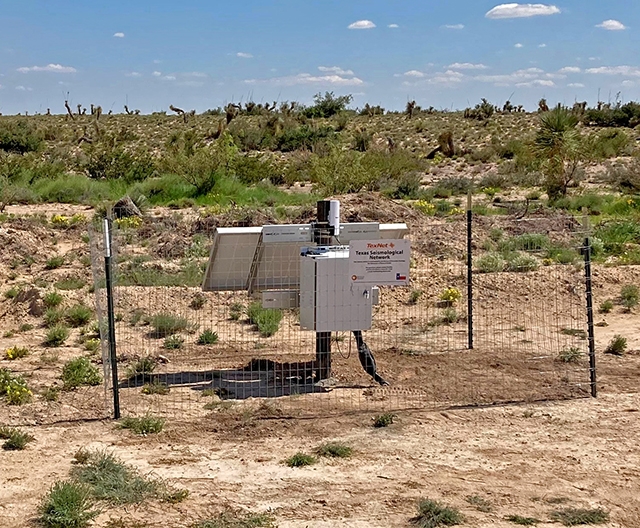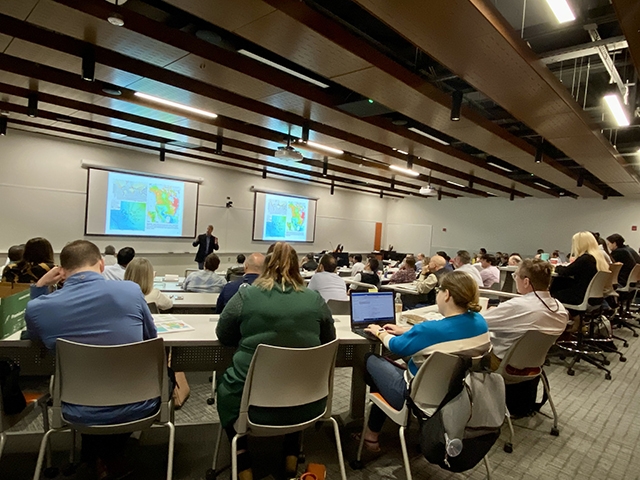Bureau of Economic Geology Team Conducts Seismicity Workshop in West Texas
The rates of anthropogenic earthquakes in Texas have increased significantly in the last few years, especially in the Permian Basin region. Understanding induced seismicity does not require deep technical skills, but it does require the thorough synthesis of geophysical, geological, and reservoir engineering data.
Recently, the Bureau of Economic Geology’s Alexandros Savvaidis, Manager and Principal Investigator of the TexNet Earthquake Monitoring Network, Peter Hennings, Principal Investigator of the Center for Integrated Seismicity Research (CISR), and JP Nicot, Senior Research Scientist, Hydrogeology and Reservoir Engineering, conducted a one-day workshop in Midland, Texas. Under the auspices of the West Texas Geological Society, the researchers introduced concepts in induced seismicity research and provided the background skills required to understand its cause and be conversant in how it is monitored and analyzed.
About 80 participants heard presentations providing timely information on seismologic monitoring, earthquake analysis, earthquake hazard and risk, mechanics of fault rupture, fault characterization, fault rupture sensitivity analysis, pore pressure analysis, performance of causal analysis, evolution of induced seismicity hazard, and mitigation steps.
The workshop was tremendously well received, and other associations have inquired about the Bureau conducting similar workshops in the near future. For more information about workshops, TexNet or CISR, please contact Peter Hennings or Alexandros Savvaidis.

